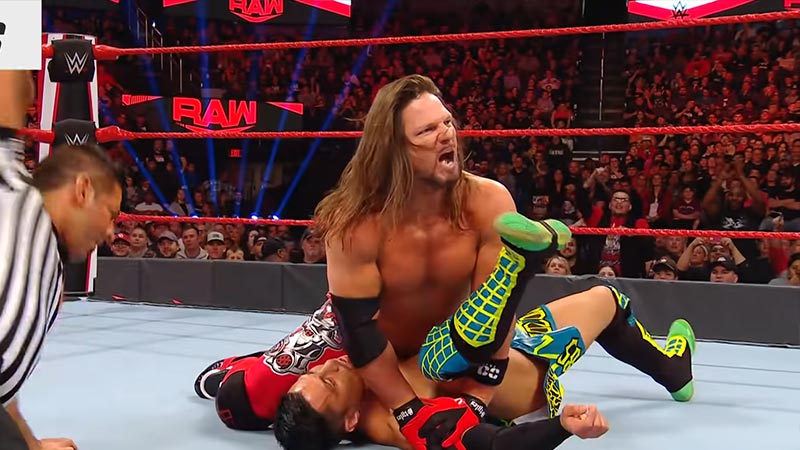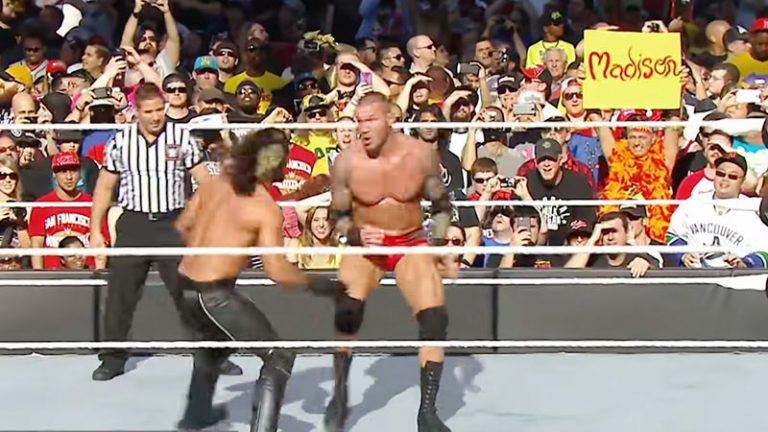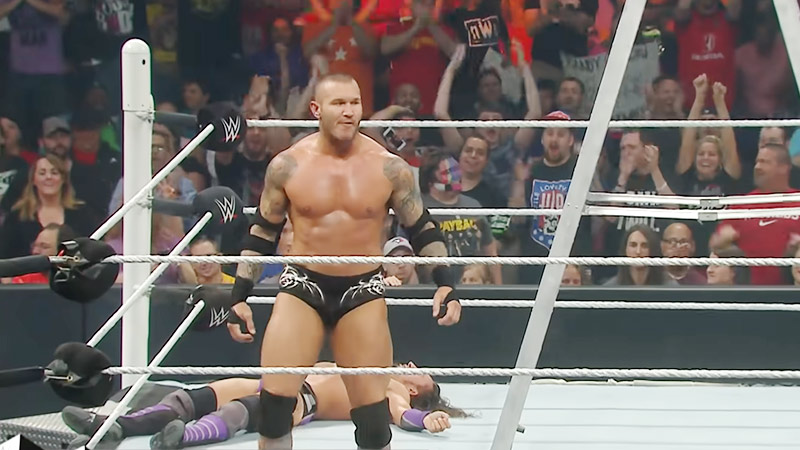Have you ever heard the letters "RKO" and wondered what they actually mean? Maybe you thought of old movies, or perhaps a famous wrestling move, you know? It's a question that pops up quite a bit, and honestly, figuring out the story behind these three letters can be pretty interesting. Just like trying to get a good handle on how words like "do" and "does" work in a sentence, which, you might say, helps us speak clearly, truly grasping what RKO stands for really clears up a piece of cultural history. We're going to explore that right now.
For many, RKO brings to mind the golden age of Hollywood, a time when grand studios shaped cinema as we know it, that's for sure. It was a period of incredible innovation and storytelling, and RKO was, in some respects, right at the heart of it. They made some truly memorable films, and their influence still, you know, resonates today.
But then, for a whole different group of people, RKO means something else entirely. It's a sudden, impactful maneuver seen in professional wrestling, a move that often decides the outcome of a match. So, how can one set of letters have such different, yet equally impactful, meanings? It’s a bit of a puzzle, but we'll put the pieces together.
Table of Contents
- The Birth of a Hollywood Giant: Radio-Keith-Orpheum
- The RKO in the Wrestling Ring
- Frequently Asked Questions About RKO
- Unraveling the RKO Mystery
The Birth of a Hollywood Giant: Radio-Keith-Orpheum
When people ask, "What does RKO stand for?", the original, and perhaps most significant, answer points to a major player in early American cinema. RKO is an abbreviation for Radio-Keith-Orpheum. This name itself tells a story of different companies coming together, you know, to form something big. It was, in some ways, a real powerhouse in its time.
The Founding Story
The creation of RKO Radio Pictures, as it was formally known, happened in October 1928. This was a rather interesting time, as the film industry was going through a massive shift from silent films to "talkies," movies with synchronized sound. David Sarnoff, who was then a big figure at the Radio Corporation of America (RCA), saw a huge opportunity. He wanted to use RCA's sound-on-film technology, called Photophone, in movie theaters. To do this, he needed a film studio and a chain of theaters, basically.
So, what did he do? He put together a few existing entities. He acquired the Film Booking Offices of America (FBO), which was a small but growing film studio, and then he merged it with the Keith-Albee-Orpheum (K-A-O) vaudeville theater circuit. The "Keith" came from Benjamin Franklin Keith, a pioneer in vaudeville, and "Orpheum" from the Orpheum Circuit, another large chain of theaters. RCA contributed its sound technology and a bit of capital. The "Radio" part of the name came directly from RCA, and the "Keith-Orpheum" part came from the merged theater chains. That's how, you know, the full name came about.
This new company, RKO, was, in a way, a vertically integrated giant. It had the means to produce films, distribute them, and then show them in its own theaters. This was a very common business model for the major studios during Hollywood's golden age. It gave them a lot of control over the entire process, which was, quite frankly, a huge advantage.
A Golden Age of Cinema
RKO quickly became one of the "Big Five" studios during Hollywood's golden era, alongside names like MGM, Paramount, Warner Bros., and 20th Century Fox. They were known for a wide variety of films, from big musicals to gritty film noirs and even groundbreaking dramas. They had a knack for pushing boundaries, sometimes, which was pretty cool.
One of their most iconic contributions was to the monster movie genre. In 1933, they released "King Kong," a film that truly redefined special effects and storytelling, and it's still very much talked about today. It was a massive success and showed what RKO was capable of. They also produced many of the Fred Astaire and Ginger Rogers musicals, which were, you know, incredibly popular and set a standard for dance in film. These films were incredibly elegant and charming, and they captivated audiences worldwide.
RKO was also the studio behind Orson Welles's "Citizen Kane" (1941), a movie often called one of the greatest films ever made. While it wasn't a box office smash at the time, its innovative techniques and complex narrative left a lasting mark on cinema. It really changed how people thought about filmmaking, you might say. They also made classic film noirs like "Out of the Past" and many others that are still studied and enjoyed by film enthusiasts.
The Decline and Legacy
Despite its early successes and artistic achievements, RKO's fortunes began to shift in the late 1940s and early 1950s. A series of changes in ownership, including a controversial period under Howard Hughes, really destabilized the company. Hughes, a famously eccentric and reclusive figure, made decisions that often hurt the studio's productivity and morale. It was, frankly, a bit of a mess.
Legal challenges also played a big part. The U.S. Supreme Court's "Paramount Decree" in 1948 forced the major studios to sell off their theater chains, breaking up the vertical integration that had been their foundation. This hit RKO particularly hard, as its theater assets were a significant part of its value. By the mid-1950s, RKO Radio Pictures had largely ceased film production. The studio lot was eventually sold, and its film library changed hands multiple times.
Even though the original RKO Radio Pictures no longer exists as a major studio, its legacy is still very much alive. Its films are celebrated, studied, and enjoyed by new generations. The name "RKO" itself, you know, still evokes a certain era of filmmaking. It stands as a reminder of a time when grand visions were brought to life on the silver screen.
The RKO in the Wrestling Ring
Beyond the silver screen, the letters RKO have taken on a completely different, yet equally famous, meaning, especially for fans of professional wrestling. This is where the acronym, or rather, the initialism, refers to a signature wrestling move. It's a rather exciting thing to see, too.
A Move That Made History
The RKO in wrestling stands for "Randy Orton's Knockout." Randy Orton, a very well-known professional wrestler, popularized this move. It's a variation of a "cutter" maneuver, where the wrestler grabs an opponent's head and falls backward, driving the opponent's head into the mat. Orton's version is particularly famous for its suddenness and impact. He can hit it, you know, "out of nowhere."
The move became Orton's finishing maneuver, meaning it's the move he typically uses to win matches. Its popularity grew immensely because of Orton's ability to deliver it unexpectedly, often when an opponent seemed to be in control. This element of surprise made it incredibly exciting for fans watching, whether live or on television. It's a very dramatic moment, usually.
Impact on Pop Culture
The RKO wrestling move has transcended the world of professional wrestling and found its way into broader pop culture. Videos of Randy Orton hitting the RKO in unexpected situations, often edited into everyday scenarios, have gone viral across the internet. These memes show the move being performed on people falling, animals jumping, or objects moving in just the right way to make it look like Orton delivered his signature move. It's, like, pretty funny sometimes.
This widespread recognition means that for many younger people, or those not deeply familiar with classic Hollywood, "RKO" immediately brings to mind Randy Orton and his iconic move. It's a testament to how a single, powerful action can create a lasting cultural footprint. It just goes to show, you know, how things can evolve.
Frequently Asked Questions About RKO
People often have more questions about RKO, whether they're thinking of the movies or the wrestling. Here are some common ones.
Is RKO Pictures Still Around?
The original RKO Radio Pictures studio, as a major film production and distribution company, is not around today. It stopped its main film production in the mid-1950s. However, the RKO name and its film library have seen various revivals and ownership changes over the years. There have been attempts to bring back the RKO brand for new productions, but none have reached the scale or influence of the original studio. So, in its classic form, no, it's not. You can learn more about film history on our site, which might be helpful.
What Are Some Famous RKO Movies?
RKO produced many classic films during its active years. Some of the most famous include "King Kong" (1933), which was a groundbreaking special effects marvel. Then there are the delightful musicals starring Fred Astaire and Ginger Rogers, such as "Top Hat" (1935) and "Swing Time" (1936). Orson Welles's "Citizen Kane" (1941) is often considered one of the greatest films ever made, and it was an RKO production. Other notable films include "The Hunchback of Notre Dame" (1939), "Cat People" (1942), and the noir classic "Out of the Past" (1947). They really made a wide variety, you know.
Who Created the RKO Wrestling Move?
The RKO wrestling move was popularized and named by professional wrestler Randy Orton. While the move itself is a variation of a "cutter" maneuver, which had been used by other wrestlers before him, Orton's unique delivery and the widespread recognition of his version made it his signature. It's now, you know, synonymous with his name. You can often find videos of it online, and it's quite a sight.
Unraveling the RKO Mystery
So, when someone asks, "What does RKO stand for?", you now have a pretty comprehensive answer. It's a term with a rich, dual history. On one hand, it represents a pioneering force in the early days of Hollywood, a studio that gave us some of the most enduring films ever made. It was a place of innovation and creativity, truly.
On the other hand, it's a dynamic, instantly recognizable move in the world of professional wrestling, a testament to the power of a single athlete to create a lasting cultural impact. Both meanings, while very different, share a common thread: they represent something impactful and memorable in their respective fields. It's, you know, quite a journey for three simple letters.
Understanding these different facets of RKO really shows how words and acronyms can evolve and take on new significance over time. It's a bit like how language itself is always changing, isn't it? If you're curious to explore more about how things get their names or the stories behind them, there's always more to learn. You can, for instance, find out more about RKO Radio Pictures and its history. We also have other articles, like this one about the evolution of language, which might interest you.



Detail Author:
- Name : Nicholaus Mueller
- Username : shanel.mccullough
- Email : ruby.rodriguez@gmail.com
- Birthdate : 1983-04-16
- Address : 488 Pagac Common Jalonport, SC 83123-3969
- Phone : (484) 782-4579
- Company : Runolfsdottir, Dare and Conroy
- Job : Roustabouts
- Bio : Corrupti blanditiis animi et nihil odit. Libero quia nesciunt dignissimos voluptatem et nihil. Quo nesciunt molestiae vel. Nihil rem quis consequatur ut aliquam provident.
Socials
facebook:
- url : https://facebook.com/donald_o'hara
- username : donald_o'hara
- bio : Quo qui quis ut necessitatibus repellat quia.
- followers : 979
- following : 2905
tiktok:
- url : https://tiktok.com/@donald.o'hara
- username : donald.o'hara
- bio : Consequuntur quo quia suscipit rerum. Labore animi dolor quas aliquid nihil.
- followers : 5955
- following : 1429
linkedin:
- url : https://linkedin.com/in/do'hara
- username : do'hara
- bio : Nihil et aliquid consequuntur quo et.
- followers : 934
- following : 35
instagram:
- url : https://instagram.com/donald_xx
- username : donald_xx
- bio : Cum error alias quo atque assumenda dolorum. Autem reprehenderit similique ut quibusdam ea et.
- followers : 3821
- following : 622
